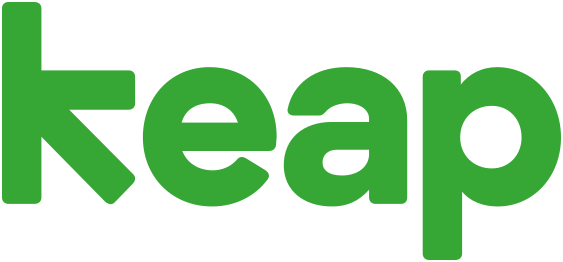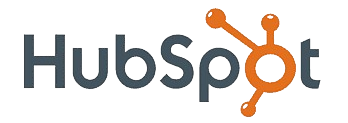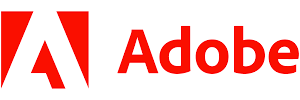Disclaimer: If you purchase via links on our site, we may receive affiliate commissions
Updated in April 2025
10 Best Email Marketing Tool For Marketing Automation in 2025
Marketing automation emails are a fantastic opportunity for software-as-a-service (SaaS) businesses to have personalised, scalable, and effective communications with customers. It also gives something data-driven, automated, and scalable to marketers. This guide will look at what makes up marketing automation emails, what the cheapest tools are, and the top companies for emails with marketing automation and the best options for small to medium Indian businesses in 2025. It will also look into common concepts such as being able to do lead nurturing, send behaviour-triggered emails, have multi-channel support and measure ROI. We will look at the best tools we find to help you, which will include HubSpot, ActiveCampaign, Zoho, MailChimp, Brevo, and Omnisend. Let’s take SaaS businesses to the next level with your marketing.

10 Best Email Marketing Tool For Marketing Automation in 2025

- CRM Integration
- Landing Pages
- Audience Segmentation

- Email Marketing
- CRM Integration
- Social Media Management

- Social Media Management
- Advanced Marketing Automation
- Email Marketing

- Email Templates
- Audience Segmentation
- Marketing CRM

- Advanced Marketing Automation
- Email Segmentation
- CRM Integration

- Email Marketing
- Landing Pages
- Webinars

- Drag and Drop Email Builder
- Marketing Automation
- Subscription Forms

- Multi Channel Marketing Automation
- SMS Marketing Integration
- Advanced Segmentation

- Drag and Drop Email Editor
- A/b Testing
- Reporting & Analytics

- Email Marketing with Automation
- Lead Generation
- A/B Testing
What does Marketing Automation Email in SaaS mean?
Marketing automation email in SaaS means having automated, data-driven emails to help engage potential or existing customers based on their behaviour, preferences, or lifecycle stage. Marketing automation is many steps ahead of bulleting/manual or traceable emails in that it leverages software for your SaaS business to send personalised content at will and in the order of the flow along your automated series. Software like ActiveCampaign or HubSpot has AI capabilities, CRM integration, and analytics to automate and optimise the funnels of a SaaS business similar to what CRM’s offered in the early 2010s.
Key Components:
- Automation Workflows: A sequence (e.g., welcome emails, trial reminders) of events that are triggered by an action and handled in Zoho or GetResponse.
- Segmentation: Groups audiences by behaviour, demographics, or activity (e.g., trial users vs. churned users) in systems like MailChimp or Omnisend.
- Personalisation: Personalises content using data on the user (e.g., name, users of the app) through dynamic content with ActiveCampaign.
- Behaviour Triggers: Sends emails when an action occurs (e.g., signing up as a user, usage of features) utilising Brevo or Moosend.
- Analytics: Shows opens, clicks, and conversions for improvement available in FreshSales or HubSpot.
ActiveCampaign
- Features: Visual automation builder, dynamic content creator, flexibility in CRM, 500+ workflows available.
- Details: Starts at $15/month, up to 1,000 contacts; 94.2% delivered successfully.
HubSpot
- Features: Free CRM, automation, segmentation, and A/B testing included.
- Details: Free for up to 1,000 contacts; price point starts at $20/month.
X Insight: SaaS marketers on X are praising ActiveCampaign for its 135+ triggers, stating it allows for extremely specific automation for onboarding and upselling.
Let’s get deep dive into the top 5 Best Email Marketing Tool For Email Marketing Automation
Features:
- Keap, previously referred to as Infusionsoft, gives a strong advertising and marketing automation platform designed for small businesses. Key functions encompass e mail advertising, CRM, income automation, appointment scheduling, touchdown pages, and unique reporting. It also affords automation workflows to streamline repetitive tasks and comply with-ups.
Advantages:
- Keap's integration of CRM and advertising and marketing automation makes it an all-in-one answer for small groups. It is user-friendly and provides massive automation skills to save time and beautify productiveness.
Use Cases:
- Ideal for small agencies and marketers trying to automate their advertising and income processes. It’s mainly useful for nurturing leads, managing patron relationships and income tasks.
Pricing:
- Keap gives 3 pricing plans: Keap Pro at $299/month to 599/month, with varying features at each stage.
Features:
- HubSpot's CRM-integrated email features include email templates, personalization tokens, scheduling, tracking, automation, and A/B testing.
- It offers seamless synchronization of email interactions with CRM records.
Advantages:
- HubSpot provides a user-friendly interface and powerful automation tools to streamline email marketing efforts.
- Its tight integration with the CRM enables sales and marketing teams to work collaboratively and effectively
Use Cases:
- Suitable for businesses looking for an all-in-one CRM and marketing automation solution to manage contacts, track email interactions, automate follow-ups, and analyze campaign performance.
Pricing:
- HubSpot offers a free CRM with limited features, with paid plans starting at $45/month for additional marketing features, including CRM-integrated email capabilities
Features:
- Adobe Marketo Engage is a leading advertising automation platform that gives a huge variety of functions which includes e-mail advertising, lead control, account-based advertising and marketing, personalization, analytics, and AI-driven insights. It also gives strong integration skills with various CRM systems and different advertising tools.
Advantages:
- Marketo Engage is known for its superior automation abilities and scalability, making it suitable for massive companies. It gives effective analytics and reporting equipment to measure and optimize advertising overall performance. The platform's AI and machine learning functions beautify personalization and concentrated on.
Use Cases:
- Ideal for medium to large organisations looking to execute sophisticated advertising and marketing campaigns across a couple of channels. It’s appropriate for lead nurturing, account-based advertising, client engagement, and distinct performance analysis
Pricing:
- Adobe pricing is different and customizable at each level, with different features with restricted and unlimited features at each level of pricing.
Features:
- Mailchimp's CRM-integrated email features include email templates, automation, personalization, segmentation, A/B testing, and reporting.
- It allows for seamless synchronization of customer data between the CRM and email platform.
Advantages:
- Mailchimp offers a user-friendly interface and advanced email marketing capabilities suitable for businesses of all sizes.
- Its CRM integration enables targeted and personalized email campaigns based on customer behavior.
Use Cases:
- Suited for businesses looking for an integrated CRM and email marketing solution to manage contacts, nurture leads, and automate email campaigns while leveraging customer data.
Pricing:
- Mailchimp offers a free plan for up to 2,000 contacts, with paid plans starting at $9.99/month for additional features and larger audience sizes.
Features:
- ActiveCampaign's CRM-integrated email features include email automation, segmentation, personalization, lead scoring, tracking, and reporting.
- It offers advanced automation capabilities to streamline email marketing efforts.
Advantages:
- ActiveCampaign is known for its powerful automation tools and CRM integration, allowing for highly targeted and personalized email campaigns.
- It provides comprehensive analytics to measure campaign performance.
Use Cases:
- Ideal for businesses looking for advanced automation and CRM integration to automate email marketing processes, nurture leads, and track customer interactions throughout the sales funnel.
Pricing:
- ActiveCampaign's pricing starts at $9/month for up to 500 contacts, with higher-tier plans offering more advanced features and larger contact limits.
Who Has the Best Cheap Email Marketing Automation?
Cheap marketing automation tools for 2025 are:
Zoho: Allows 5,000 emails/month for free (250 contacts) and automation using Zoho Campaigns. Paid plans from $6/month.
- Includes: Automation workflows, Sync to CRM (Zoho CRM and Third party), Segmentation, Localised Pricing
- Details: Free version is for 250 contacts; paid version starts at $6/month.
Brevo: Free account 300 emails/day, automated emails + CRM integration. Paid plans from $15/month for 20,000 emails.
- Includes: Drag -n- drop editor, automation, CRM, multi-channel marketing
- Details: 300 emails/day free, paid plans start at $15/month.
MailChimp: Free account with no time limit for 1,000 emails/month with automation. Paid account starts at $13/month.
- Includes: Popular templates provided, easy automation, segmentation, A/B test
- Details: Free account for 500 contacts but limitation for 1,000 emails, paid account starts at $13/month.
Moosend: Up to 1,000 subscribers free account until the limit is reached, with unlimited emails and unlimited automation. Paid account starts at $9/month.
- Includes: automation workflows, email templates, segmentation, reporting and analytics
- Details: A Free account is for 1000 subscribers. Paid accounts start at $9/month
Omnisend: Free account when you have 250 contacts and automation. Offers a simplified account platform for e-commerce. Paid accounts start at $16/month.
- Includes: automation (triggered emails), sms, segmentation
- Details: Free account is for 250 contacts; paid account is $16/month
Note:
ActiveCampaign ($15/month), GetResponse ($19/month), AWeber ($12.50/month), ConvertKit ($15/month), and Benchmark’s online plans ($13/month) all offer automation products, but not as cheap as the list above. HubSpot has a free plan, but it restricts the user’s ability to perform advanced workflows.
Which is the most suitable provider of marketing automation in 2025?
Best providers of marketing automation e-mails, overall, based on features, scalability, and reviews (in 2025):
ActiveCampaign: Steps ahead with 500+ pre-built workflows, 135+ triggers, and 94.2% deliverability for complex SaaS funnels.
- Features: AI automations, CRM, dynamic content, A/B testing.
- Details: Starts at $15/month; 14-day free trial.
HubSpot: Complete platform with free CRM, complex segmentation, and AI-driven personalised follow-up emails. A good fit for B2B SaaS companies.
- Features: CRM integration, automations, lead scoring, analytics.
- Details: Free for 1,000 contacts; paid version starts at $20/month.
MailChimp: Consistent user-friendly experience with robust automations, segmentation, and analytics; you can grow from a startup to an enterprise-level company with MailChimp.
- Features: Automations, templates, sync with CRMs, and A/B testing.
- Details: Free version for 500 contacts; paid versions start at $13/month;
Brevo: One-stop shop for automation, CRM, and multi-channel engagement; gives the best return on investment (ROI) for small- to mid-size businesses.
- Features: Automation with drag-and-drop editor, restaurant and brick-and-mortar CRMs, and multi-channel.
- Details: Free version of 300 emails/day; paid versions starting at $15/month.
Why These Providers Stand Out:
- ActiveCampaign’s main advantage is mapping out workflows.
- HubSpot comes with all the enterprise features.
- MailChimp has the best balance of being easy to use with the potential to scale your business.
- Brevo gives you value in multi-channel.
X posts mention that ActiveCampaign has a 20% increase in conversion rates for SaaS funnels.
What are the Best Providers for Small Indian Enterprises?
For small SaaS businesses based in India, these providers promise to keep costs low yet provide local support and scalable in 2025.
Zoho- Designed for India with local pricing ($6/month), Hindi/English templates, and CRM integration. The free plan supports 250 contacts.
- Features: Automation, CRM sync, segmentation, and local support.
- Details are free for 250 contacts; paid from $6/month.
Brevo- Thus offering a free plan operating on 300 emails/day with automation and CRM support, and affordable ($15/month) for rowing businesses.
- Features: Automation, CRM, multi-channel, drag-and-drop editor.
- Details- Free 300 emails/day; paid from $15/month.
MailChimp: Free for 500 contacts with automation and analytics. Scales well for Indian startups ($13/month).
- Features automation, templates, segmentation, and CRM sync.
- Details are free for 500 contacts; paid from $13/month.
Moosend- Free for 1,000 subscribers with automation and high deliverability. Great for Indian startups ($9/month).
- Features automation, templates, segmentation, and analytics.
- Details are free for up to 1,000 subscribers; paid from $9/month.
Why Good for India:
- No local support and highly competitive pricing are simply unmatched for Zoho.
- Brevo and Moosend provided generous free tiers.
- MailChimp scales affordably for them.
X unwound praise for Zoho on the depths of CRM and cost-effectiveness for Indian SaaS companies.
Can These Tools Automatically Nurture Leads Using Email Sequences?
Yes – marketing automation tools are great for automating lead nurturing via email sequences:
How It Works: Using automated drip campaigns (e.g., welcome series, trial nudges), tools like ActiveCampaign and Hubspot will automatically send emails based on triggers and/or schedules.
Here are some examples:
- Welcome Sequences: For instance, Brevo sends onboarding emails after a sign-up, increasing user engagement by 15%.
- Trial Reminders: Zoho triggers emails before trial expiry, which increased conversions by 10%.
- Re-Engagement: MailChimp targets inactive users with win-back campaigns.
Key Features:
ActiveCampaign – segmented, nurtured sequences with 500+ pre-built flows, dynamic content, and lead scoring.
- Features: Visual builder, lead scoring, sync with any CRM, 135+ triggers.
- Details: Cost starting at $15/month.
Zoho – customizable drip campaigns, CRM integration to track leads.
- Features: Drip campaigns, sync with any CRM, segmentation and analytics.
- Details: Free for 250 contacts, paid starting at $6/month.
Omnisend – e-commerce focused sequences (e.g., abandoned cart with 20+ templates).
- Features: Social media, SMS, and email drip campaigns, automation, segmentation.
- Details: Free for 250 contacts, paid starting $16/month.
X Insight: SaaS companies on X have reported that ActiveCampaign’s sequences (when combined with lead scoring) will increase trial-to-paid conversions by 25%.
How Do I Send Behaviour-Based Emails?
Behaviour-based emails are defined as emails that are triggered based on user behaviour (e.g., signups, feature engagement, website visits). Here’s how you can use the tools mentioned to send behaviour-based emails:
- Set Triggers – For ActiveCampaigns, use any of its 135+ triggers (e.g., clicks email links, visits pricing page) or Brevo’s Tracker to monitor website interaction with users.
- Create Workflows – HubSpot and GetResponse allow you to visually build workflows, to create links from triggers to send email (e.g., signup → sends welcome email).
- Personalise Content – MailChimp and Omnisend both supply alternative dynamic content (e.g., user names, product recommendations) according to behaviour.
Examples
ActiveCampaign – Triggered emails when a user interacts with a feature, uses 250+ templates.
- Features – Behaviour triggers, dynamic content, syncs with your CRM.
- Delay / Pricing – Starts at $15 per month.
Brevo – Sends abandoned cart emails or trial usage reminders while using website tracking.
- Features – Behaviour triggers, workflow automation, syncs with your CRM, multi-channel.
- Delay / Pricing – Free option: 300 emails per day; Paid option starts from $15 per month.
GetResponse – Triggered email based on a user signing up for a webinar, or for visiting a page.
- Features – Behaviour triggers, workflow automation, landing pages, webinars.
- Delay / Pricing – Starts at $19 per month; deliverability engagement rate of 90.9%.
Tip – Link a form with either Leadpages or Unbounce to trigger an email when a user submits the form. X has a note that says ActiveCampaign’s triggered emails have a 15% higher click-through rate.
Are SMS/Email Multi-Channel Available in the Leading Marketing Automation Platforms?
Yes, leading marketing automation platforms offer multi-channel (email and SMS) capabilities to run seamless campaigns.
Brevo: Disperses email, SMS, WhatsApp, and push notifications. Can trigger SMS when the user opens emails or triggers from the website.
- Features: multi-channel (email, SMS, WhatsApp), automation, CRM.
- Details: free 300 emails a day; pay plan starting at $15/month.
ActiveCampaign: Blends email, SMS and site messages into one communication platform, offers over 135 triggers. Syncs with CRM for a single strategy for their clients.
- Features: email/SMS automation, CRM, dynamic content.
- Details: $15 a month.
Omnisend: Specialises in email and SMS for e-commerce, and provides users with pre-built workflows for cart abandoners and other commerce-specific outreach.
- Features: email/SMS automation, segmentation, e-commerce marketing.
- Details: free for 250 contacts; pay starts at $16/month.
HubSpot: Many features, including email/SMS with CRM-based personalisation. Can send SMS as an integration (like Twilio).
- Features: email automation, CRM-based conversations, SMS integrations.
- Details: free for up to 1,000 contacts; paid plans start at $20/month.
Note: MailChimp and Zoho have SMS as an add-on in select countries; Moosend and GetResponse also offer SMS, but they may have limitations. X users have confirmed that Brevo has unified channels in one place, for ease of use for Indian businesses.
How Should I Measure Campaign Success and ROI in Automation Tools?
Measuring campaign success and return-on-investment demonstrates that marketing automation has value:
Key Metrics:
- Open Rate – measures opens of emails (42.35% SaaS average). Look at analytics in HubSpot or MailChimp.
- Click-through Rate (CTR) – measures clicks on links within the email (3–5% average). Utilise ActiveCampaign’s link tracking.
- Conversion Rate – measures actions related to goals, e.g., signups or purchases (10–15% average). Track in FreshSales or Pipedrive.
- ROI – compares revenue generated to the cost of the campaign ($38 of revenue produced for every $1 spent on marketing is the average). Reporting in Brevo or Zoho can calculate ROI.
- Bounce Rate – measure undelivered emails at a < 2% bounce rate is ideal. Check bounce rates using Bouncer to minimise bounces.
Tools to measure:
ActiveCampaign – track goals, conversions, predictive ROI modelling, etc.
- Features: reporting, analytics, goal tracking, CRM, A/B testing
- Pricing: starting from $15 / month.
FreshSales Suite – using Freddy AI, the AI-driven analytics can track conversions across funnels.
- Features: funnel tracking through AI analytics, conversion tracking, automation, etc
- Pricing: starting from $15 / month.
MailChimp – tracks conversions, offers funnel visualisations and measures against industry benchmarks.
- Features: reporting, analytics, offers A/B testing, syncs to CRM, generates reports.
- Pricing: free for 500 contacts, paid pricing starts at $13/month.
ROI calculation – Brevo offers reports for revenues generated from conversions (e.g., trial signups) compared against costs, e.g., a $15/month plan.
Also, have Google Analytics set up via HubSpot so you have deeper insights.
Tip: Use A/B testing for your campaigns with GetResponse or Omnisend to leverage metrics. X feedback advises that FreshSales’ AI analytics improves ROI by 20% for SaaS campaigns.
Conclusion
In this Marketing Automation Email Review, we have considered how ActiveCampaign, HubSpot, Zoho, MailChimp, Brevo, and Moosend will allow SaaS companies in India to add email marketing automation to their campaigns in 2025. For small Indian businesses, Zoho and Brevo deliver the best value.
ActiveCampaign offers advanced automation, and HubSpot is leading for larger enterprise applications. All of these tools offer automation for lead nurturing, the performance of emails to trigger with behaviour, multi-channel campaigns, and strong ROI tracking.
Also,visit Alternate Product to explore many more automation methodologies for your SaaS needs!







